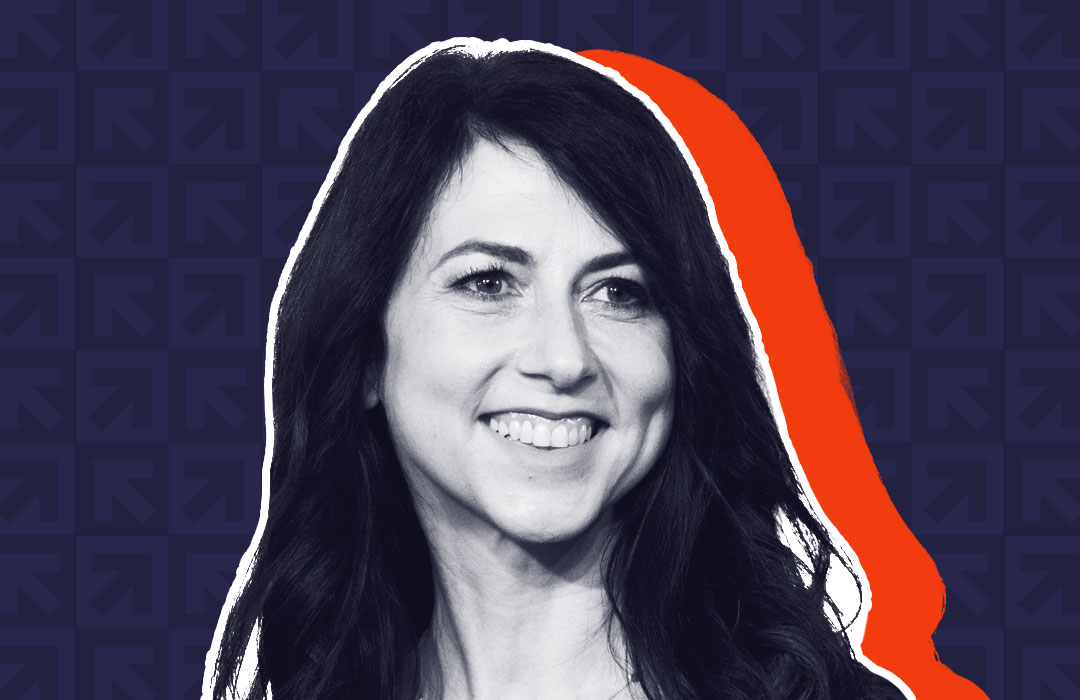MacKenzie Scott is transforming American philanthropy.
The novelist signed the Giving Pledge — a public promise from billionaires to give away at least half their wealth — in May 2019, just weeks after sharing the terms of her divorce from Amazon founder Jeff Bezos after 25 years of marriage. As part of her breakup with one of the richest men alive, Scott received a 25% stake in Amazon, which was worth roughly $38 billion at the time.
And she wanted to get rid of it.
“I have no doubt that tremendous value comes when people act quickly on the impulse to give,” she wrote in her pledge. “I have a disproportionate amount of money to share. My approach to philanthropy will continue to be thoughtful. It will take time and effort and care. But I won’t wait. And I will keep at it until the safe is empty.”
Scott hasn’t wasted any time; in fact, she announced the latest batch of these donations — nearly $2 billion, distributed to 343 organizations — last month. Recipients in the most recent group of Scott beneficiaries include Big Brothers Big Sisters of America, Chicago Public Schools, GLAAD, the National Alliance on Mental Illness, the Translatinx Network and the Women’s Refugee Commission.
That brings the total number of grant recipients to roughly 1,500 organizations and her total donations to $14.4 billion, according to Forbes. Much of that giving has been focused on tackling racial and gender equity issues. “As always,” Scott wrote in March, “our aim has been to support the needs of underrepresented people from groups of all kinds.”
Scott’s style of giving is highly unusual given the size of her donations: There’s no formal application process, and the money comes without any strings attached. And on top of that, many recipients have no idea what’s coming.
“Scott’s emissaries [appear] out of nowhere with a huge check, without strings or fanfare, then [vanish],” Fortune reported in March. She’s able to do that because her gifts are routed through a donor-advised fund rather than a foundation.
Those methods have elicited both praise and frustration. A study released in November by the Center for Effective Philanthropy found that more than 80% of 2020 and 2021 recipients said Scott’s money helped “significantly strengthen their organization’s ability to achieve its mission.”
“Her donation changed the way we could do business,” Claflin University President Dwaun Warmack said in August. “She didn't tell me what I needed to do with funds. I knew better than anybody else what my institution needed." Scott’s $20 million gift to Claflin, a historically Black university in Orangeburg, South Carolina, was the largest in the school’s history.
Other organizations have lamented that they are unable to contact her, while more worry that her selective gifts — and opaque criteria — might reflect less than favorably on organizations that do not receive them. (Scott has given to some HBCUs and YMCAs, for instance, but not others.) Some believe gifts of a certain magnitude, along with the organizations that deliver them, should be more transparent.
But Scott is famously private and famously media-shy.
“I want to de-emphasize privileged voices and cede focus to others,” she wrote in June 2021.
Her only regular communication with the public comes through a few posts per year on Medium. There, she recaps her recent donations and, in a nod to her literary roots, often discusses a poem that’s inspiring her. Works by Rumi, Gwen Nell Westerman and Emily Dickinson have all been featured.
The posts also include Scott’s own thoughtful prose, giving people a glimpse into the generous mind of the otherwise-mysterious philanthropist.
“What fills me with hope is the thought of what will come if each of us reflects on what we can offer,” she wrote in a 2020 message announcing her first round of grants. “Opportunities that flowed from the mere chance of skin color, sexual orientation gender, or zip code may have yielded resources that can be powerful levers for change.”






